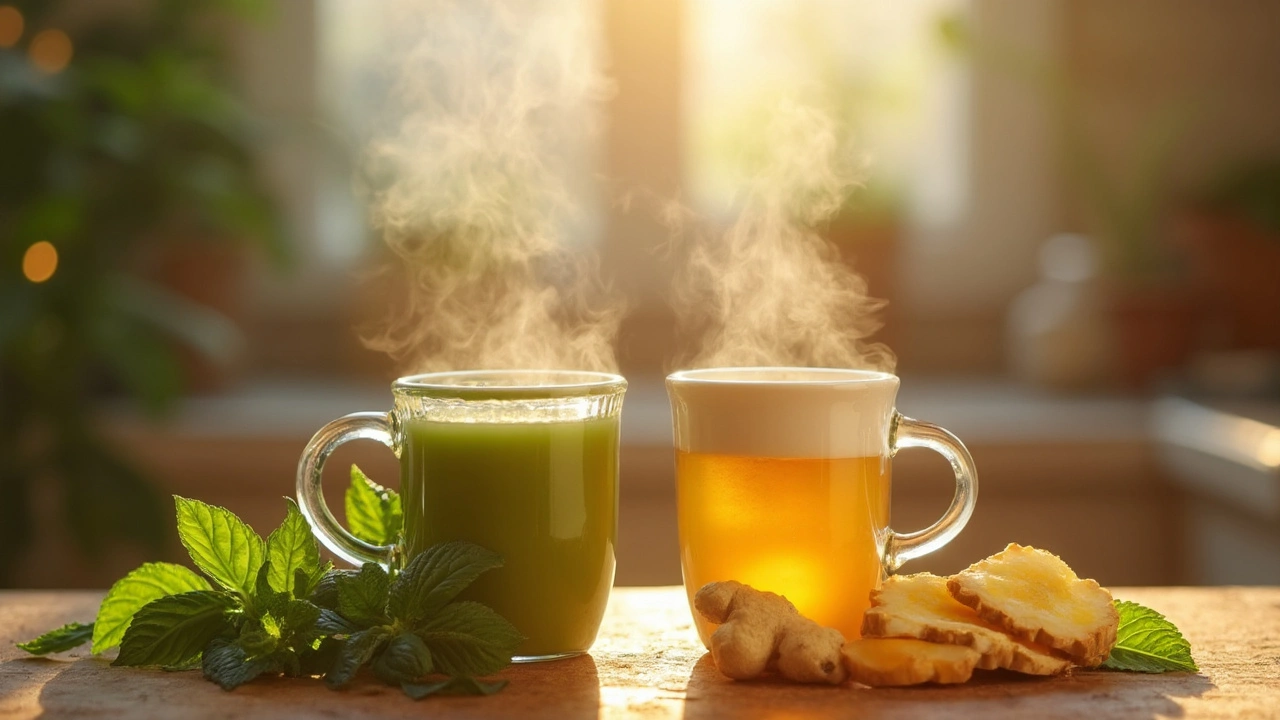Ginger Tea: What It Does, How to Brew, and When to Drink It
Ginger tea is more than a warm drink – it can calm an upset stomach, ease a sore throat, and give your immune system a little boost. The spice comes from the ginger root, which is packed with gingerol, a natural compound that makes the tea spicy and soothing at the same time.
If you’re looking for a simple, cheap way to feel better after a heavy meal or a cold night, a cup of ginger tea might be the answer. Below you’ll find the basics of why it works, a quick recipe, and tips on when to enjoy it or avoid it.
How to Make the Perfect Ginger Tea
Start with fresh ginger if you can. A thumb‑size piece (about 1‑2 inches) peeled and thinly sliced is enough for one cup. If you only have dried ginger powder, use a half‑teaspoon instead.
Boil 1 cup of water, add the ginger slices, and let them simmer for 5‑10 minutes. The longer you simmer, the stronger the flavor and the more gingerol you get. After simmering, strain the liquid, add a splash of lemon or a little honey if you like a sweeter taste, and sip while it’s warm.
Feel free to mix in other ingredients like a pinch of cinnamon, a few mint leaves, or a slice of apple. Those additions can change the flavor without hiding the ginger’s kick.
When to Use Ginger Tea
Ginger tea shines in three everyday situations:
- Digestive upset: After a big, greasy meal, a cup can help move food through the stomach and reduce bloating.
- Nausea: Whether it’s motion sickness, morning sickness, or feeling queasy from medication, the spicy scent often eases the feeling.
- Cold or sore throat: Warm liquid soothes a scratchy throat, and the ginger’s anti‑inflammatory effect can lower irritation.
Most people can drink one to three cups a day without problems. If you have a bleeding disorder, are on blood thinners, or are pregnant, keep it to one cup and talk to a doctor first. Too much ginger can cause heartburn or a mild upset stomach for some people.
Remember that ginger tea isn’t a cure‑all. It works best as part of a balanced diet and regular health habits. Pair it with plenty of water, good sleep, and a diet rich in fruits and vegetables for the best results.
In short, ginger tea is an easy, tasty way to add a natural helper to your daily routine. Brew a cup when you feel a little off, and you’ll likely notice a gentle lift in how you feel. Keep the recipe handy, adjust the strength to your taste, and enjoy the warm comfort of ginger whenever you need it.
Peppermint vs Ginger Tea: Which Herbal Tea Calms Indigestion Fast?
Peppermint tea and ginger tea get a lot of hype as natural remedies for indigestion, but which one really works faster? This in-depth article unpacks how each tea eases digestive woes, dives into the science behind their soothing effects, and shares tips to get the most out of your cup. It highlights clinical studies, interesting facts, and practical advice for anyone struggling with stomach troubles. Curious about ingredients, possible side effects, or the best way to brew each tea? You'll find it all right here.





